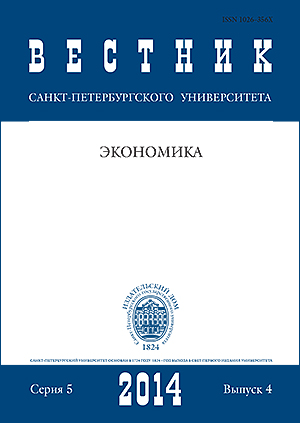Techniques, Technologies, and Politics of Crisis and Post-Crisis Economics: Anglo- American Macroeconomics and Alternatives
Abstract
This paper attempts a critical appraisal of one core debate and theories in economics about the 2008 crisis and post-2008 economic growth and stagnation. In addition to examining formal publications, this essay also examines serious blogs by high-profi le economists who are core participants in public discourse over economic policy. Drawing on the general logic of economic sociology and political economy — in particular, an appreciation for more complex microfoundations of economic practice (e.g. power and culture) and institutions—this paper addresses three issues about theoretical frameworks and claims about post-crisis growth or lack thereof: 1) Techniques: economists’ discourses focus primarily on techniques (policies and the like) available to the state and other actors for shaping economic performance, but at the cost of lack of critical distance. 2) Technologies: economists’ discourses generally pay little attention to available institutional tools and techniques for affecting economic performance, which reveals limits to economic theory and theorists, as well as continuing pro-market hegemony in the discipline. 3) Politics: economists do comment on the politics of policy discussions and policies themselves, but politics ultimately remains exogenous to discussions, theory, and models — continuing a fatal weakness of economic theory that has been noted for decades. The paper then examines alternative frameworks grounded in political economy and economic sociology that focus on (and make endogenous) institutions, states and elites, logics of capitalism, and power, and concludes with possible propositions from these frameworks regarding crisis and post-crisis economics. Refs 76.
Keywords:
2008 crisis, macroeconomics, Keynesianism, Krugman, political economy, economic sociology, field theory
Downloads
References
References in Latin Alphabet
Translation of references in Russian into English
Downloads
Published
How to Cite
Issue
Section
License
Articles of the St Petersburg University Journal of Economic Studies are open access distributed under the terms of the License Agreement with Saint Petersburg State University, which permits to the authors unrestricted distribution and self-archiving free of charge.






